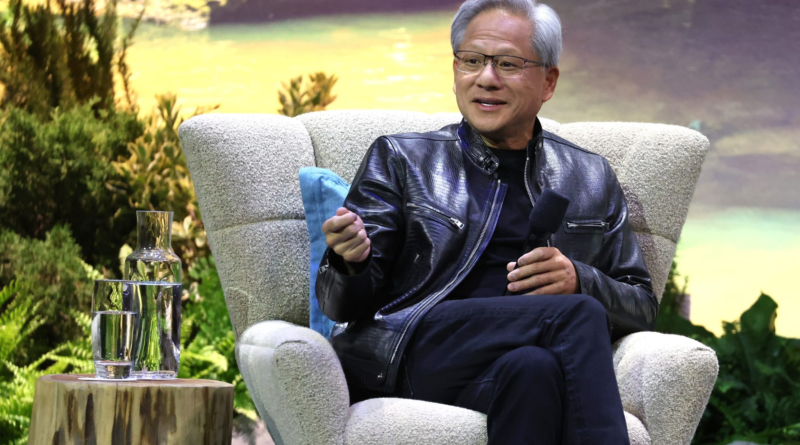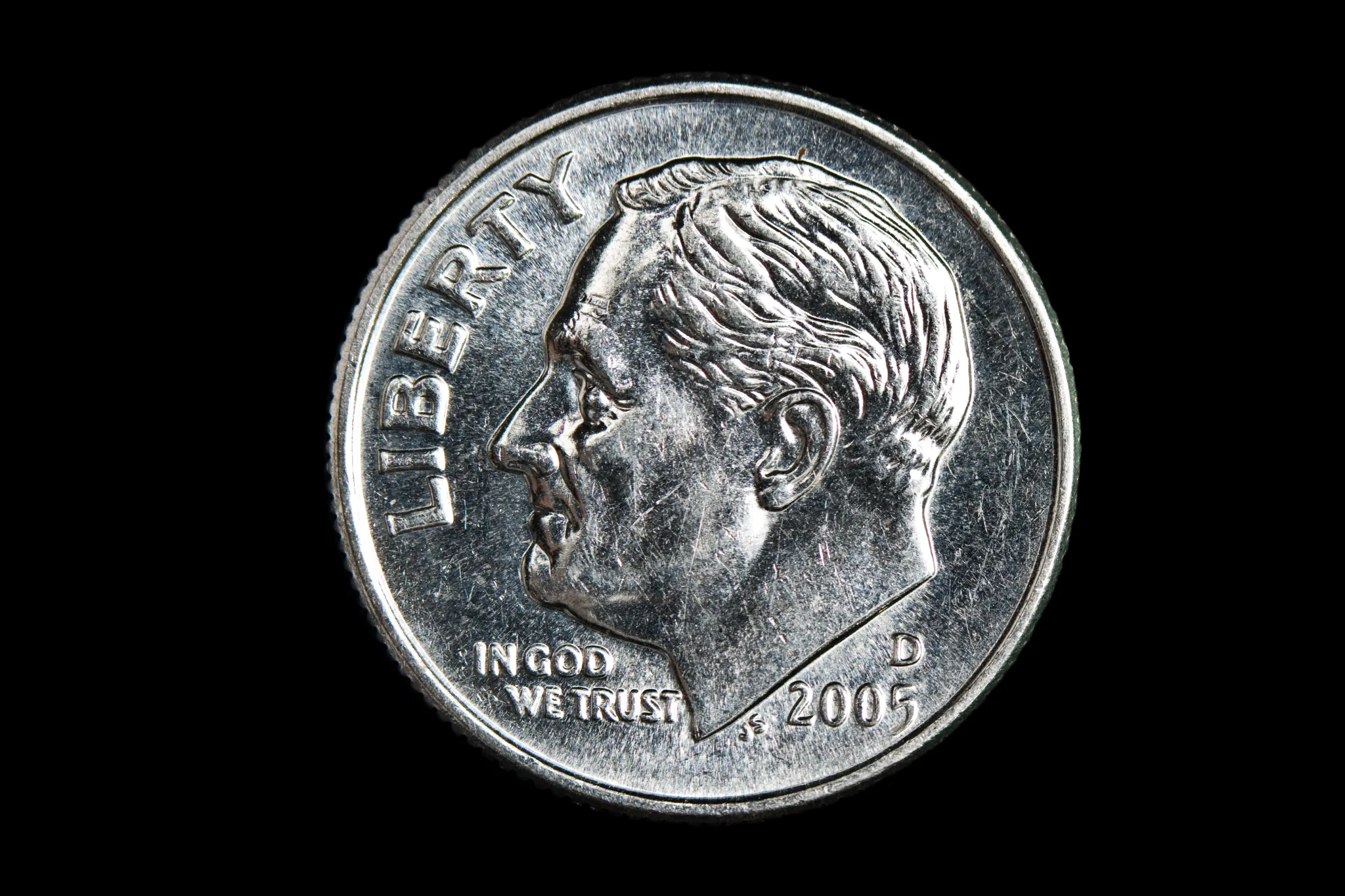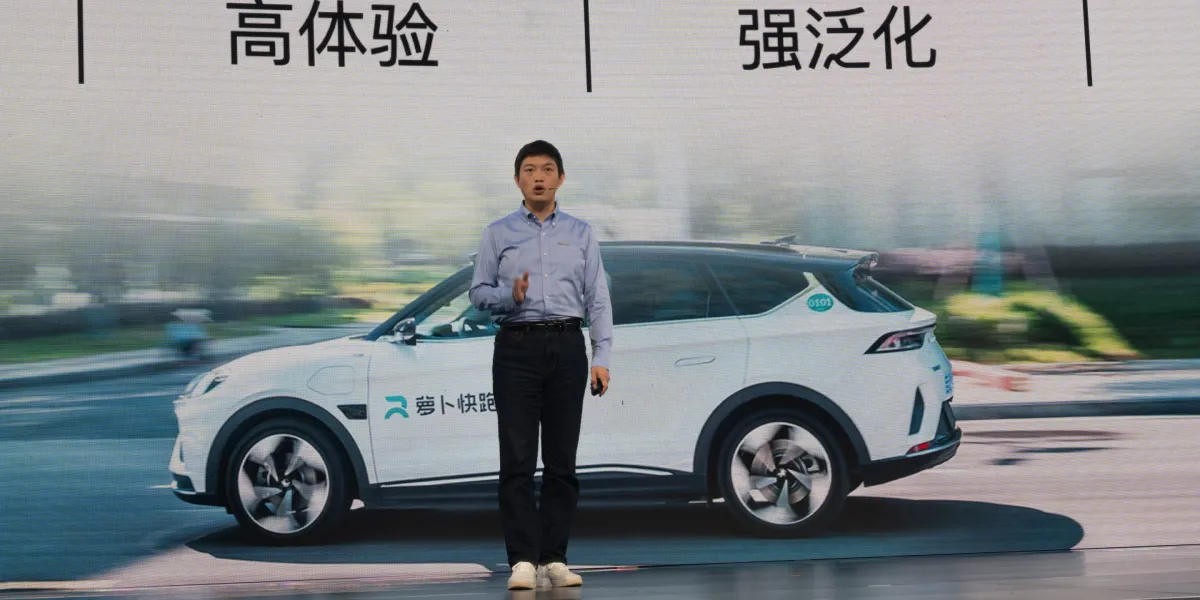Nvidia CEO waves off Blackwell production concerns, says demand is ‘staggering’
Nvidia avoided the sell-off many on Wall Street feared, in part because of another blowout earnings beat. Perhaps more importantly, the world’s largest company had plenty of good things to say about its next-generation offering of graphic processing units—the chips at the heart of the AI boom. On the company’s Q3 earnings call, CEO Jensen Huang said the rollout of the new platform, known as Blackwell, has avoided major issues and will start boosting the company’s top line ahead of schedule.
On the call, Huang brushed aside reported engineering snags, saying Nvidia is on track to outdo its prior Q4 estimates for Blackwell sales (he’s previously said the platform will initially account for several billion dollars in additional revenue). Huang touted ravenous demand for the new offering, which promises to dramatically boost AI data center performance.
“Blackwell production is in full steam,” he said.
There’s broad consensus Blackwell will be a game changer, but the path to market has not been without recent hiccups. Multiple analysts have told Fortune that production snags, which delayed Blackwell’s release by at least a quarter, were not a surprise. Early this week, however, The Information reported Nvidia had asked suppliers to adjust the design of the platform’s server racks multiple times in recent months due to overheating issues.
While Huang did not specifically address the report, he said he believes the Blackwell ramp is in great shape.
“He pretty much kind of threw cold water on all those concerns,” Angelo Zino, a senior vice president and tech analyst at CFRA Research, told Fortune after the call.
Huang says AI CapEx isn’t going anywhere
Analysts on the earnings call also got assurance from Huang that demand will exceed supply for at least several more quarters. The first question the CEO fielded concerned a growing debate about whether advancements in large language models have stalled. That claim has been floated by the likes of Yann LeCun, Meta’s chief AI scientist, who suggested greater volumes of more powerful chips won’t be enough to produce further breakthroughs.
Huang tried to assuage those concerns. The most recent large AI models, he said, required a maximum of 100,000 Nvidia “Hopper” chips, previously the company’s premier offering.
“The next generation starts at 100,000 Blackwells,” he said.
Huang cited numerous customers already up and running with the platform, including the likes of Google, Dell, and Oracle. Chief financial officer Colette Kress said Microsoft has seen performance increase more than two times compared to Hopper.
“Blackwell demand is staggering, and we are racing to scale supply to meet the incredible demand customers are placing on us,” she said.
That said, the company’s forecast of $37.5 billion in revenue for Q4, a slight beat on the Street’s consensus, was somewhat conservative, Zino said. That caused the stock to dip slightly in after-hours trading before shares recovered those losses Thursday.
The muted forecast, he added, could set up an even stronger earnings beat in late February.
Unsurprisingly, this view is shared by one Wall Street’s most prominent tech bulls. Wedbush Securities’ Dan Ives said Huang’s bullish commentary should send the stock’s bears into hibernation mode.
“Nvidia and Jensen will continue to underpromise and overdeliver,” he wrote in a note Thursday.
So far, that’s been a good recipe for shares that have appreciated 850% over the last two years.



